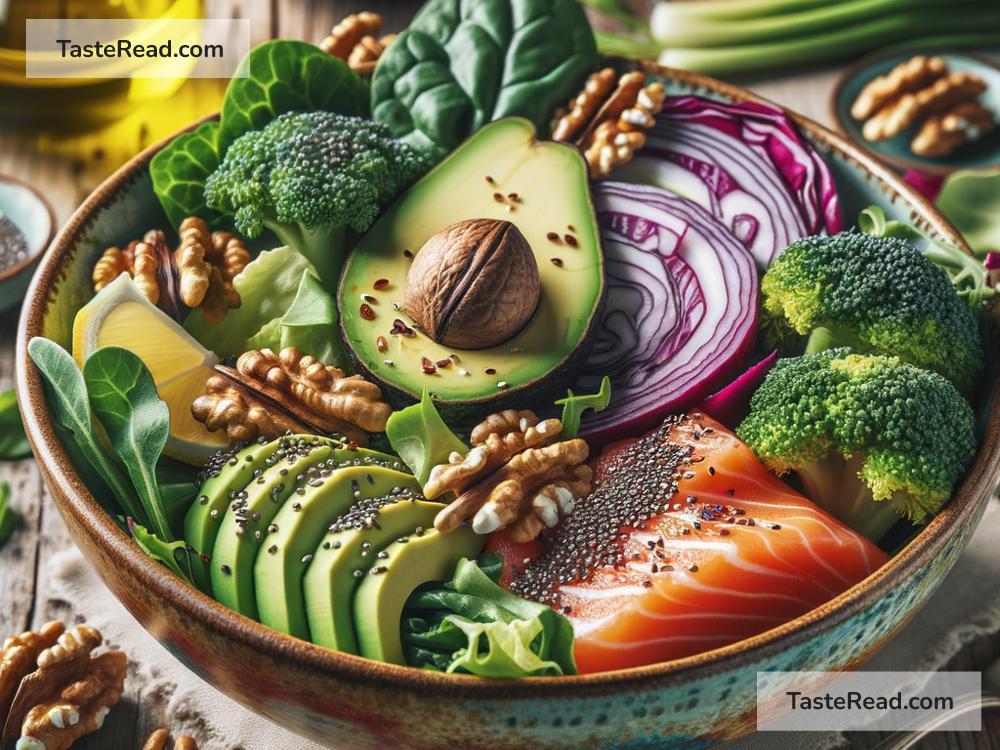Unlocking the Power of Food: Enhance Your Gene Expression Naturally
Did you know that the food you eat can impact how your genes behave? It’s not science fiction — it’s called epigenetics. Think of your genes as a blueprint for your body. While you inherit these blueprints from your parents, certain foods and nutrients can influence gene expression, activating or “turning off” certain traits in the blueprint. This means that while you can’t change your actual DNA, you can make better choices to optimize how your genes work for a healthier life.
So let’s dive into some everyday foods that may help enhance gene expression and keep your body working at its best.
1. Leafy Greens: The MVP of Epigenetics
You’ve probably heard many times that spinach, kale, and other leafy greens are good for you. But did you know they hold special powers when it comes to gene expression? These greens are rich in folate, a type of B vitamin that plays a crucial role in DNA methylation — a process that can regulate how genes are expressed.
For example, folate helps ensure that genes involved in repairing damaged cells are active while keeping harmful genes silent. So, load up on salads, smoothies, or lightly steamed greens to give your genes an extra boost.
2. Fatty Fish: For Brain and Heart Health
Fatty fish like salmon, mackerel, and sardines are packed with omega-3 fatty acids, which help regulate inflammation and optimize brain function. But did you know omega-3s also play a role in gene expression? Studies suggest that these healthy fats can influence genes linked to reducing inflammation and strengthening your immune system.
If you’re not a fan of fish, don’t worry — flaxseeds, walnuts, and chia seeds are good plant-based alternatives for omega-3s. Your genes will thank you!
3. Berries: A Colorful Way to Power Your DNA
Blueberries, strawberries, and raspberries are more than just delicious snacks. They are rich in antioxidants and plant compounds called polyphenols. These compounds can activate “good” genes that protect your body against cancer and oxidative stress while switching off genes that promote inflammation.
Plus, the antioxidants in berries protect your DNA from damage caused by free radicals. Add them to your cereal, yogurt, or smoothies for a tasty way to guard your gene health.
4. Turmeric: The Golden Spice for Gene Activation
Turmeric, the golden-yellow spice often used in curries, contains a compound called curcumin. Curcumin is well-known for its anti-inflammatory properties, but it also affects gene expression. It can “turn on” genes that combat inflammation and “turn off” genes linked to chronic diseases like cancer and heart disease.
To enhance absorption, pair turmeric with black pepper, which contains piperine — a compound that boosts curcumin’s effectiveness. Try adding turmeric to soups, rice, or teas to support your genes naturally.
5. Nuts and Seeds: Tiny Powerhouses for Your Genes
Almonds, walnuts, sunflower seeds, and flaxseeds may be small, but they pack a big punch when it comes to gene health. Nuts and seeds are rich in micronutrients like magnesium, zinc, and selenium, which play key roles in gene regulation. Selenium, for instance, helps activate antioxidant genes that protect cells from damage.
Enjoy nuts and seeds as a snack, sprinkle them on salads, or use nut butters in smoothies for a convenient way to boost your epigenetic health.
6. Cruciferous Vegetables: Broccoli, Cauliflower, and More
Broccoli, cauliflower, cabbage, and Brussels sprouts are part of the cruciferous vegetable family. These vegetables contain compounds like sulforaphane, which can influence gene expression by activating detoxification genes. Think of these genes as your body’s cleanup crew, removing harmful substances and protecting you from disease.
Eating cruciferous vegetables regularly may also help “turn off” cancer-promoting genes while reducing inflammation. Steam, roast, or stir-fry these veggies to enjoy their gene-friendly benefits.
7. Green Tea: A Sip for Your Genes
Green tea contains epigallocatechin gallate (EGCG), a powerful antioxidant that can influence gene expression. EGCG has been shown to promote genes that fight inflammation and reduce the risk of chronic diseases while suppressing genes linked to cancer.
Swap your regular coffee for a soothing cup of green tea to show your genes some love. Bonus points if you drink it unsweetened!
8. Fermented Foods: Support Your Gut, Support Your Genes
Foods like yogurt, kimchi, sauerkraut, and kefir are loaded with probiotics — beneficial bacteria for your gut. Why does this matter for gene expression? A healthy gut microbiome can influence the production of molecules that help regulate which genes are active.
By improving your gut health, you’re indirectly supporting your DNA’s ability to function optimally. Add a serving of fermented foods to your diet for a happier gut and healthier gene expression.
The Bottom Line
What you eat doesn’t just fill you up — it communicates with your genes, influencing how they work to keep you healthy. By adding foods like leafy greens, fatty fish, berries, turmeric, and nuts to your diet, you can unlock the power of your DNA and give yourself a better chance at lifelong wellness.
Remember, no single food can completely change your health overnight, and genetics are complicated. But small, consistent dietary choices can make a big difference over time. So, the next time you’re at the grocery store or planning a meal, think of it as an opportunity to support your genes — and your future self!


